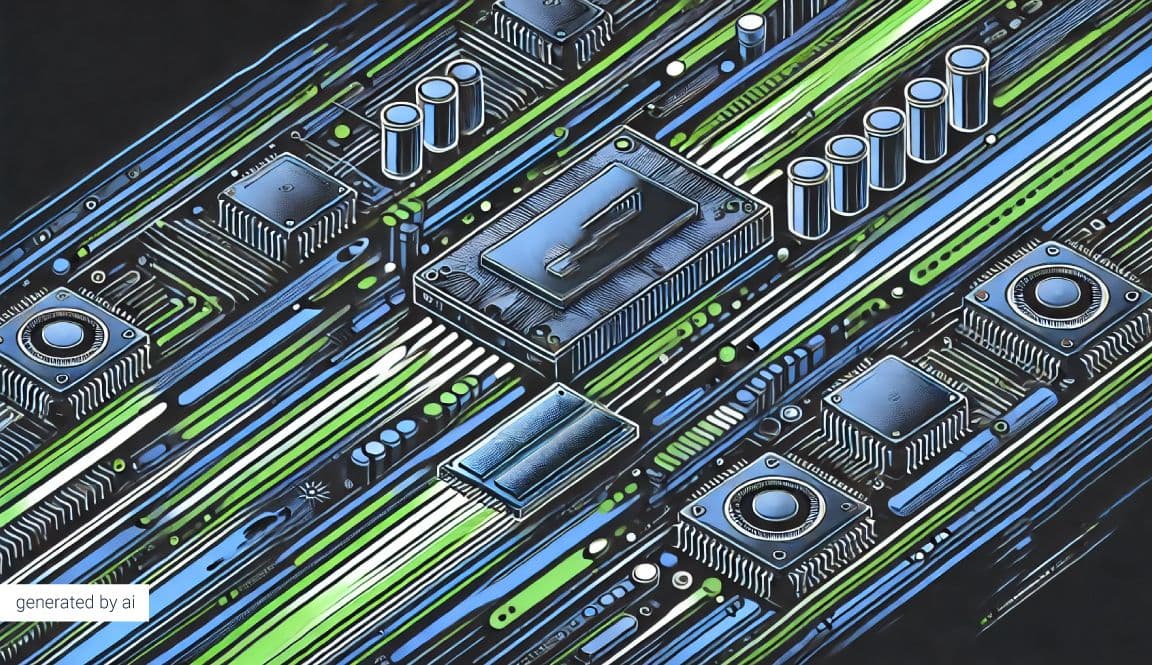
What is Cache?

Cache is a folder stored on your computer's hard drive. This folder contains the data of recently visited web pages. Its purpose is to speed up the loading time of pages you will revisit. That is, your computer's hard drive collects data from all the web pages you visit. This data includes details such as graphics and images. When you visit the same web page, there is no need to retrieve the data again. In this regard, the cache is quite useful because it helps you save time while browsing between web pages.
What is Cache?
Cache is a hardware component embedded in an application or device memory that temporarily stores data consumed by the user to shorten the waiting time for the next access. It is the place where all the components of the web page, including images, fonts, CSS, HTML, and JavaScript, are stored to save bandwidth. Without this feature, your browser would work much slower.
What Does Cache Do?
Cache allows data to be stored temporarily, speeding up access. The data collected in the cache is stored on hardware with instant access. Its primary purpose is to eliminate the need to communicate with the slower storage layer behind it.
For example, the Techcareer.net logo is at the top left of the page you're currently on. When you go to another Techcareer.net post, the same logo will continue to be there. Without cache memory, your browser would have to re-download the logo for every page it visits. However, this could lead to the depletion of your device's resources and speed. Instead, your browser stores the logo and every other resource in your computer's cache.
What are the Advantages of Caching?
The biggest advantage of caching is that it improves developer performance. This is because copies of the data are stored in specified locations on the server. Each time the website is loaded, it prevents large images from being fetched from the server. The browser checks locations before requesting resources from the server. If data is found, it is retrieved from the cache instead of being downloaded. The advantages of caching can be listed as follows:
- The primary advantage of caching is that it improves the system's performance. By saving cached versions of website file data, the creator only needs to download the content once.
- To increase speed, applications regularly cache data that is frequently used. This not only speeds things up but also allows certain applications to work offline. In other words, you can continue working using cached data even when you don't have an internet connection.
- Downloading files once improves efficiency. A cached version of a file prevents the application from accessing the file twice, wasting time and affecting battery life. Instead, the application only downloads newly added files in the background.
- Caching ensures the efficient use of network bandwidth used to request and transmit information. This effect significantly reduces the need to replicate infrastructure deployment, leading to cost savings for the entire internet ecosystem.
In some cases, the flow of data may be disrupted. If you have a cached version of an application or website, you can use it as a backup.
What are the Types of Cache?
Although they have similar functions, there are different types of cache, each serving a different purpose. The most commonly used types are:
- Browser-Side Cache: Browser-side cache is a type of site cache built into your web browser. This is where almost all the cached versions of the websites you visit are stored. You can clear the browser-side cache when necessary by deleting browsing data. This way, you can free up storage space.
- Server-Side Cache: Server cache is a general term covering various types of caches. These include object, opcode, and content delivery network (CDN) caching. This cache can only be controlled by website owners. Website owners use this cache to reduce server loads.
What is the Purpose of Clearing the Cache?
The data cached can sometimes take up a lot of space on your computer. In this case, clearing the cache helps create space for new data to be stored. Additionally, if you suspect that a corrupted version of the application or website has been cached, you can clear the cache. This allows you to store the new version on your computer.
How to Clear the Cache?
Depending on the device and browser used, there are various ways to clear cached data. However, in any case, clearing your browser cache only takes a few seconds. You can follow the steps below to clear the cache in Google Chrome:
- Click on the "More" option in the menu bar of the Google Chrome window.
- From here, select "More Tools." Then, you can click on "Clear Browsing Data."
- After this step, Google Chrome will redirect you to a new pop-up window. In the pop-up window, you should uncheck the selection of cookies and other site data and click on “Clear Data.”
You can use the cache clearing shortcut by pressing CTRL+Shift+Delete on Windows or Command+Shift+Delete on macOS. You can also follow similar steps in Safari and Firefox to clear the cache. Since the cache takes up a certain amount of space on your hard drive, it is helpful to clear the cache when necessary. However, you should remember that cached files help frequently visited websites load more easily. Clearing the cache may cause frequently visited websites to load slower on your browser.
You'll notice that most browsers have the option to clear cookies and cache in the same place. Although these two storage tools serve the same purpose, they actually perform different functions. Unlike cache, cookies store information about you and what you do online. For example, when you browse an online store, the items you add to your shopping list are saved as cookies. Cookies also track which site you've logged into. Therefore, if you clear cookies, you will need to log in again to all your accounts. However, clearing the cache does not require you to do this.
Clearing server-side cache can be a bit more challenging as there is no settings tab. To do this, you must access the root directory and manually identify and delete the stored locations.
If you are interested in technology and want to keep up with all the trends in the digital world, you should follow Techcareer.net. Techcareer.net is a platform that brings together digital talents interested in technology. If you wish, you can also participate in Bootcamp training on this platform in many topics. In addition, if you want to make a change in your career planning, you can also check the job postings page.
SSS
What does Cache mean?
Cache is hardware used to temporarily store data in a computing environment. This hardware increases the loading speed of websites. In addition to speed, cache also allows you to access previous versions of the data you have saved.
What is the Purpose of Clearing the Cache?
Clearing the cache helps your computer run faster. Since every stored piece of data takes up space on your computer, clearing the cache can improve your computer's performance.
How Often Should You Clear the Cache?
You should clear your browser cache at least once a month. However, if you encounter a slow or crashing browser, it might be time to clear the cache. Additionally, when the cache space is full, your computer may have difficulty loading websites. You might encounter outdated information and images on some sites. If you experience such issues, you should clear your cache immediately.
What are the Requirements for Bootcamp Participation?
Bootcamp participation requirements vary depending on the type of training offered. However, generally, all bootcamps are open to anyone interested in technology. You can view the detailed participation requirements on the Bootcamp page.
Are Bootcamp Trainings Paid?
Bootcamp trainings do not require any fees from participants.



